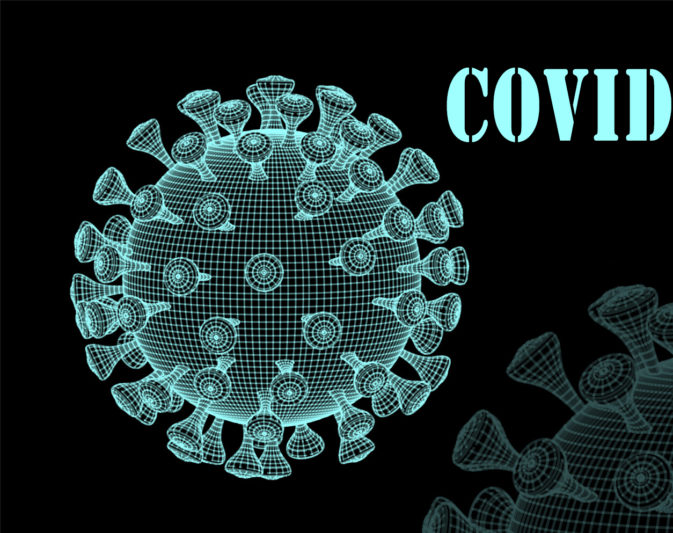Can You Qualify For Disability Benefits for COVID-19 in Chicago, IL?
None of us will forget the way the COVID-19 pandemic disrupted daily life for every American starting in 2020. And as time went by, we started realizing some people were experiencing “long COVID” effects that left them debilitated for months or longer after an initial infection.
The virus has changed, becoming a built-in presence in the infectious diseases that circulate all the time. Medical experts continue to study it.
Long before COVID-19, Social Security Disability benefits existed to help people with work-stopping health problems live more dignified, independent lives.
The disability program includes a list of impairments that can qualify for benefits. Being relatively new, COVID-19 isn’t on that list.
So can COVID-19 be the basis for a successful disability claim? Like most legal issues, the answer is that it depends on the specific facts of the case.
The Social Security Administration (SSA) does recognize COVID-19 as a potentially disabling condition.
A challenge with getting disability benefits for this illness, however, is the way it affects different people in different ways. Infected people can display a wide range of symptoms—from no symptoms at all to mild symptoms to severe illness.
For a disability benefits claim, you’ll need to document how yours is one of the COVID cases that leaves you seriously limited in what you can do for the long term.
If COVID appears to have left you permanently impaired, talk to the Chicago disability lawyers at Nash Disability Law about whether you may have a claim for financial relief.
Nash is one of the leading disability law firms in Illinois and the country by the amount of benefits we secure for our clients.
WE’VE HELPED MORE PEOPLE IN THE CHICAGO AREA WIN BENEFITS THAN ANY OTHER LAW FIRM.
Types of Social Security Disability Benefits for COVID
If you are unable to work due to any disabling physical or mental impairment, the Social Security Administration (SSA) has two programs which may be able to offer financial assistance:
- Social Security Disability Insurance (SSDI) for those who have worked in the past and made Social Security contributions
- Supplemental Security Income (SSI) to help those with little or no income or assets
But to qualify for either program, you have to prove that your impairment has lasted or is expected to last for 12 months or longer.
Most cases of COVID-19 seem to last a week or two, so that wouldn’t meet Social Security’s requirements.
But in particularly severe cases when people may suffer from long-term medical issues (like the long COVID sufferers, or “long haulers”), that could qualify as a severe impairment.
For example, some patients with COVID-19 have developed acute respiratory distress syndrome (ARDS) which can cause long-term health issues.
Impaired lung function can also negatively affect other organs like the heart, kidneys and brain with residual symptoms that remain after getting over the infection.
Medical experts at the University of Chicago Hospital said that COVID-19 could cause neurological problems including stroke-like symptoms.
“As an infection, COVID-19 can trigger inflammation in one’s body. . .[that] can trigger clots and plaque instability…[D]irect blood flow to the brain may be affected by clots. It’s just a part of having an infection in your body.”
Additionally, people who have undergone intensive medical care are at increased risk for mental health issues like post-traumatic stress disorder (PTSD), depression, and anxiety.
You don’t have to guess whether your case of COVID could give you a strong case for disability benefits. The Chicago disability attorneys at Nash Disability Law can talk to you, free of charge, to evaluate your options.
How to Qualify for COVID Disability Benefits
If you are incapacitated by impairments arising from COVID-19, there are several hurdles to get over to be granted disability benefits.
First: Since COVID isn’t on Social Security’s list of conditions with detailed requirements for when mental or physical condition are officially disabling (also called the “Blue Book”), you can’t take the route of following one of those listings.
Second: But you can qualify for benefits when a condition caused by the infection, such as a stroke or acute respiratory distress syndrome, lines up with something that is on the listing of impairments. Specific tests or laboratory findings must confirm how your condition matches another listing.
Third: The SSA also awards disability benefits based on how your condition creates limitations for you and interferes with your ability to work, regardless of what your diagnosis is. To qualify, you must demonstrate that your symptoms prevent you from sustaining full-time competitive employment on a consistent and reliable basis, based on your age, education and work experience, for at least 12 months.
If you have multiple impairments caused by or worsened by COVID-19, you should include all of them in your application for benefits.
The Social Security Administration must take into consideration all of your impairments when deciding whether you qualify for disability benefits. (For more on this subject read our blog article: Do Multiple Disabilities Improve the Odds of Receiving Benefits?)
The path to winning Social Security Disability benefits can be difficult to navigate, especially while living with a serious health condition.
For this reason, you may want a professional Chicagoland disability attorney in your corner to help you through the process and to fight for your rights. We can help you avoid costly disability mistakes.
You deserve every bit of support you can find, because when COVID-19 has altered your life, Social Security Disability benefits could help you regain stability and peace.


